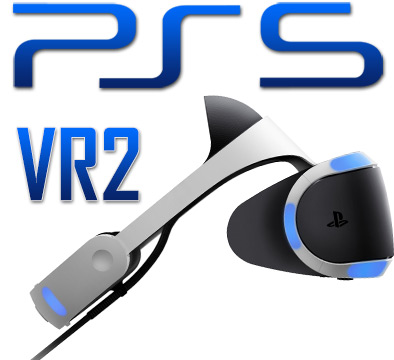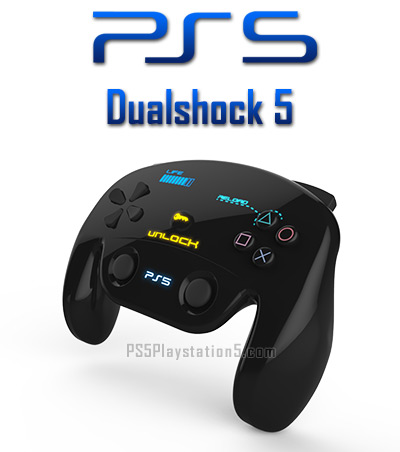 Virtual Reality has finally gone from a pipe dream, to something you can buy and experience on a PlayStation console. Competition has been fierce from the Oculus Rift and HTC Vive, but Microsoft has been lagging behind in this department. Meanwhile, more and more companies are coming out with epic experiences on PlayStation VR as the catalog grows by the week.
Virtual Reality has finally gone from a pipe dream, to something you can buy and experience on a PlayStation console. Competition has been fierce from the Oculus Rift and HTC Vive, but Microsoft has been lagging behind in this department. Meanwhile, more and more companies are coming out with epic experiences on PlayStation VR as the catalog grows by the week.
Recent sales numbers are showing strong adoption of this new hardware, and while Microsoft is finally discussing VR in more detail, it’s clear that Sony is ahead of the pack. When PS5 releases, it will have the power (and possibly the VR headset) to beat them all. Join us as we look at all the evidence pointing to a future where Sony rules the VR playing field.
PlayStation VR Selling Strong, Competition is Lagging
After its launch in the final months of 2016, everyone wanted to know how PlayStation VR was selling. Would it soar high and break Sony’s track record of under-performing peripherals (sorry PlayStation Move)? There were plenty of naysayers who wanted to shoot it down, but in early 2017, Sony started talking numbers.
Andrew House, global chief executive of Sony Interactive Entertainment, spoke with The New York Times and mentioned some specifics about the sales of their VR headset and how they stacked up against expectations.

Andrew House himself was concerned about how quickly the market would jump on the VR bandwagon:
“It’s the classic case in any organization, the guys who are on the front end in sales are getting excited, very hyped up. You have to temper that with other voices in the company, myself among them, saying let’s just be a little bit careful.”
They decided not to manufacture as many as you would expect, and as a result, there was a major shortage in stores everywhere, Japan especially. During his interview with The New York Times, Andrew House revealed that as of February 19th, 2017, PSVR had sold 915,000 headsets in four months since launch.
The internal goals for Sony were a million headsets in the first six months. Andrew House mentioned in his interview that “You literally have people lining up outside stores when they know stock is being replenished,” when he was describing the atmosphere in Japan. Clearly Sony is set to meet or exceed these expectations.
These numbers also place Sony at the forefront of VR success. In terms of premium headsets, PlayStation VR is the lowest price point at $399. While Oculus, Facebook, and HTC haven’t shared their sales numbers yet, research from SuperData Research has estimate that Oculus Rift sold about 243,000 and HTC Vive sold 420,000 by the end of 2016.
Comparing all of this to other technology launches, one of the most successful launches was the iPhone first three months in 2007 in which it sold 1.4 million units. On the software side of things, Sony is enjoying massive engagement with VR since the launch of Resident Evil 7, which supported the entire game in VR on Sony’s platform.
After launch, a total of 922,904 players opted to share their playtime data with Capcom. Out of this number, 87,463 of them played the game in VR. Nearly 10% of all players utilized this feature, which represented a major milestone for VR.
With numbers that are matching expectations and possibly exceeding them in the near future, PlayStation VR is looking like it has a bright future. But wait, where does Microsoft and Project Scorpio/Xbox 2 stand in all of this? Let’s discuss.

Microsoft Isn’t Making VR a Priority: Sony Will Win Before The Battle Starts
Perhaps the most shocking part of this entire situation, is the fact that Microsoft isn’t moving faster with their plans for VR. In an Interview with IGN, Xbox President Phil Spencer spoke about Project Scorpio and completely skirted around a release date for Scorpio’s VR headset.
In fact, if you skip to the 20-minute mark, you’ll see that Phil starts talking about VR concepts and mentions things like markets, nouns, and verbs. He’s talking about how to market it and where it fits in the ecosystem of gaming. All of this makes sense, but it also speaks to how early on they are in the planning stages.
Microsoft has a number of VR headsets in development for Windows 10, but none of these are being talked about in the context of Scorpio, which is another factor pointing to a late launch of virtual reality on the new Xbox console. He does admit that VR will be important for Scorpio, so it’s going to happen, but he doesn’t say when.
His vision is VR that’s no longer tethered and doesn’t need stationary tracking. That’s the kind of stuff they’re working on, but it’s not going to be here in time for Scorpio. So, taking all of this into account, we can assume that VR won’t hit Scorpio until at least middle of 2018, but it could honestly take even longer than that.
PlayStation VR’s first anniversary is going to come and go, and the second anniversary could very well come and go as well before Microsoft even gets on board. That’s a lot of time for Sony to not only perfect, but also plan out their next steps in the realm of VR.
PS5 Releases With PlayStation VR 2: Game Over Microsoft

Dualshock 5 Concept
We don’t have a release date yet on PS5, but we have some ideas of when it could be here. Our release date page details all of the latest information and speculation. As part of this page, we recently covered the predictions of analyst Damian Thong where he predicted that PS5 would release in 2018 with 10 teraflops of power and record sales for Sony.
While that may be a little soon, given the young nature of PS4 Pro and PlayStation VR, let’s say it releases in late 2018 or even 2019. At this point, Scorpio will be out and it may on its way to getting VR, but it won’t have it. Meanwhile, PS4 has enjoyed years of VR and numerous patches and improvements to solidify its place as the mainstream VR console of choice.
Here’s what’s going to happen: Microsoft is going to release their VR solution just as or shortly after Sony brings out the PS5. A few problems arise here:
- PS5 will absolutely be more powerful than Scorpio
- PS5 will most likely come with or release alongside a PSVR 2.0 model
- All of the experience and knowledge Sony has gathered will result in better VR hardware and more talented VR developers to pull from
In short, Sony will have the power, the means, and the talent to provide a VR solution that is miles ahead of Microsoft. No matter how good their headset for Scorpio is, they will still have kinks to work out, and developers to woo over to their side of things. Sony is already putting in the work and the time to ensure they have these things, but meanwhile, Microsoft is floundering over what words to use in their marketing.
Sony has the VR war clinched in its favor, and PS5 will solidify that victory. Of course, that’s just our opinion. We want to hear from you! What do you think will happen with the VR market? How will Microsoft’s offerings compare? Let us know in the comments!
The opinions and views of this article are solely that of the author’s and do not reflect the views of Sony or Microsoft.
Article by – Bradley Ramsey
Related Articles:
